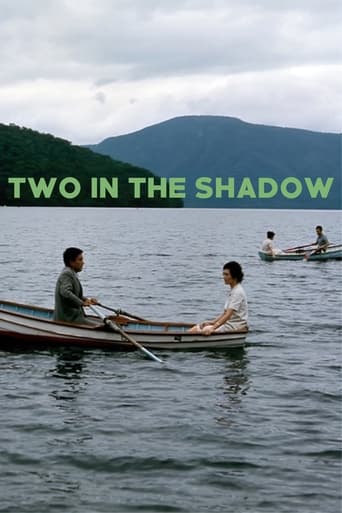nmegahey
Despite some recent interest in his works in the west, Mikio Naruse has still largely remained in the shadow of his contemporary Yasujiro Ozu, a comparison that has hasn't served Naruse well. Despite some superficial genre similarities however, a wider look at Naruse's work - few of the director's 89 films have been seen outside Japan - shows that the comparison really isn't even merited. Shot in Tohoscope and in colour, Naruse's gorgeous melodrama Scattered Clouds is closer to Douglas Sirk than Ozu, but it's also possible to consider the film's style and subject matter as being influential on other Asian filmmakers like Wong Kar-Wai (In the Mood For Love) and the Korean master of romantic melodrama Hur Jin-Ho (April Snow). The pace is more sedate, but considering the nature of the encounter here, the passions are necessarily of the slow-burn kind.It takes that long for Yumiko's feelings to change towards the man who was responsible for her husband's death in a car accident. Shiro, a driver for an escort/entertainments company, has been cleared of any wrongdoing, but can't help but feel a sense of guilt for what has happened, particularly when Yumiko is subsequently disinherited from her husband's family protection. It's this sense of guilt on both sides, for different reasons that draws the couple together, and at the same time proves to be an impossible impediment to the love that they eventually feel for each other.Strikingly shot, delicately understated, with the occasional abstract poetic cutaway to sustain mood and tension, the pacing and balancing of emotions is masterful as the film builds towards a quietly devastating conclusion.
savagedudeguy
Scattered Clouds (Mikio Naruse, 1967) - 8.25/10 Probably the biggest disappointment that I've encountered so far with Naruse but in my mind, he really can do no wrong. This doesn't have quite as much insight as Ozu's swan song An Autumn Afternoon. Frankly, it's a very good example of how Naruse can walk a fine line between melodrama and tragedy. Yôko Tsukasa, unfortunately, is not an adequate replacement for the great Hideko Takamine. Fumiko Hayashi, who wrote many of Naruse's great post-war dramas isn't present either, instead replaced by Nobuo Yamada who is mostly known for writing Masahiro Shinoda's Assassination. It's not that the story is particularly bad, but it's just perfectly set up for melodrama. It begins with a death in the family, much like in Naruse's Daughters, Wives, and a Mother but seems to take the exact opposite route. Where as the tragedy in that film is very much downplayed, it seems to be, if anything, magnified here. Despite all this, it is one of his more technically impressive efforts and probably the one with the least amount of dialogue. The opening sequence, in particular, was quite a surprise. It would be smart to read most of the negative comments I left about this film as a comparison to Naruse's other efforts because this is still a very good film but at this point, I expect a little bit more from him.
laura-magnus
Scattered Clouds is no less than the end of an era: Naruse died two years later - it was his last film - Ozu and Mizoguchi had been dead for years and Kurosawa was in the wilderness after the end of his collaboration with Mifune. Like elsewhere in the world newer, fresher (cinematic) ideas took over. Which isn't to say that Scattered Clouds isn't one of Naruse's best and moving films. Yoku Tsukasa must be one of the world's most beautiful women - ever, and a very talented actress as well. In this story of impossible love between a widow and the driver who accidentally killed her husband her restrained performance crowns a career that encompasses work for Ozu, Kurosawa and Kobayashi


